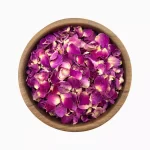Розовая вода
Вас приветствует Khoshbin Group – поставщик и производитель ингредиентов из сухофруктов и орехов.
Основные характеристики нашей розовой воды:
- Свежая: производится из тщательно отобранных, свежесрезанных роз.
- Полезная: сохраняет натуральные питательные вещества цветков розы.
- 100% натуральная: без консервантов.
- 100% без добавок: не содержит добавок и примесей.
- Универсальна в применении: ее можно использовать в различных целях.
Примечание: Мы поставляем два сорта розовой воды: стандартная розовая вода и насыщенная розовая вода, в зависимости от количества лепестков роз, замачиваемых в воде.
Почему стоит выбрать Khoshbin Group в качестве оптового поставщика розовой воды?
- Мы являемся оптовым поставщиком и производителем розовой воды.
- Мы соблюдаем меры строгого контроля качества (QC) на каждом этапе производства.
- Ежегодно наши высококвалифицированные специалисты проводят анализ сельскохозяйственных культур и ферм, что дает нам доступ к лучшим урожаям года.
- На производстве соблюдаются строгие санитарно-гигиенические нормы.
- Высокое качество и безопасность наших продуктов подтверждены сертификатами.
- Мы предлагаем различные виды упаковки, чтобы удовлетворить требования разных рынков.
- У нас высококвалифицированные рабочие на заводах и команда бизнес-экспертов.
- Мы поставляем готовые к употреблению (ready-to-use, RTU) ингредиенты из сухофруктов и орехов, не требующие дальнейшей обработки.
- Мы производим 100% натуральные, 100% без добавок, гигиенично упакованные сушеные розы.
- Мы гордимся нашими многочисленными довольными клиентами по всему миру.
Спецификации розовой воды
Подробные спецификации розовой воды приведены в таблице ниже:
Использование розовой воды
Некоторые из способов применения розовой воды в домашних условиях включают в себя следующее, но не ограничиваются этим:
Как используют розовую воду?
- Распыляют на лицо в качестве средства для очищения кожи или тоника.
- Используют для приготовления различных продуктов и блюд, например, джемов, халвы и др.
- Розовую воду используют в качестве ароматизатора для дома или духов (наносят на лицо или запястья). Также с помощью розовой воды можно укрепить сон, просто окропив ею подушки.
- Традиционно используется как лекарство.
Полезные свойства розовой воды
В Иране розовую воду производят уже 1000 лет. Персидский учёный, философ и врач Авиценна первым изучил лечебные свойства цветов розы в X веке. Он дистиллировал первый образец розовой воды, который впоследствии использовал в своей медицинской практике.
Каждый год мы отмечаем фестиваль розовой воды, такой же древний, как и сама розовая вода. В чем заключается польза розовой воды для здоровья человека?
- Она обладает противовоспалительным действием.
- Уменьшает боль в горле.
- Снимает головную боль.
- Это антисептическое и антибактериальное средство.
- Улучшает настроение.
- Нормализирует уровень pH в организме.
- Содержит антиоксиданты.
Как производится розовая вода?
Розовая вода производится путем кипячения лепестков роз в горячей воде. Ее активно используют как в домашних рецептах, так и в промышленности. Например, для изготовления защитных средств для кожи, травяного чая, сиропов и т. д. Наша розовая вода производится из дамасской розы, выращиваемой иранскими фермерами. Для этого лепестки роз бережно отделяют от бутонов и подвергают паровой дистилляции.
Этим процессом руководят опытные флористы, которые научились этой технологии у своих родителей, бабушек и дедушек, в результате чего получается высококачественная, всемирно известная розовая вода. Она производится только из двух ингредиентов – роз и воды, о чем и говорит ее название “розовая вода”.
Розы уже много лет известны своими красивыми и ароматными цветами. Оказывается, розы появились на земле около 35 миллионов лет назад. Несмотря на то, что они были с нами сколько времени и могут похвастаться яркой историей, люди стали выращивать их в своих садах около 5000 лет назад, в древнем Китае.
В период Римской империи розы выращивали на Ближнем Востоке. И использовали их в основном для изготовления духов, лекарств и в качестве конфетти на свадьбах. Во время «Войны роз» (Война Алой и Белой розы) в пятнадцатом веке, битвы между группировками английской знати, которые пытались получить контроль над Англией, белая роза использовалась как символ Йорков, а красная роза – Ланкастеров.
Розы всегда были излюбленной темой в искусстве и появлялись на иллюстрациях, портретах и архитектурных элементах. В настоящее время розы выращивают почти повсюду, а их применение распространилось и на продукты питания. За эти годы было выведено много съедобных сортов роз, и ежедневно разрабатываются все новые и новые рецепты с их использованием. Чем больше люди узнают о розах, тем больше их используют в различных целях.


- Submitting an inquiry by the customer via web form, live chat, or email provided on our website
- Preparing and sending a proposal by the company which includes the price, payment, and delivery terms
- Finalizing the order details and clarifying the set of documents
- Signing contract if the customer approves the proposal
- Issuing Invoice to customer
- Remit prepayment by customer
- Production Start, after the payment settles in the company’s account
- Observing internal QC measures by the company to ensure the product complies with the customer requirements
- Shipment:
- Air shipment (usually used for low quantity, 300kg – 2000kg)
- Ground shipment by truck (can load 20-21 tons)
- Sea shipment (20ft container between 12 -18 tons depending on the product and packaging; 40ft container between 20-25 tons depending on the product and packaging)
- Truck and vessel (using a combination of ground and sea shipment)
- Sending a copy of the original shipping document through email for final approval
- Paying off the balance mentioned on the Invoice by the customer
- Sending the original shipping document to the customer address



Reviews
There are no reviews yet.